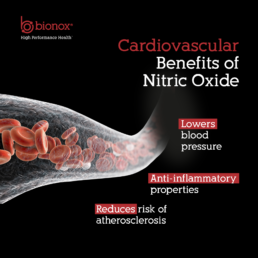Does L-Arginine Work?
In the world of health supplements and nitric oxide products, few amino acids have garnered as much attention as L-Arginine, particularly for its role in producing nitric oxide (NO), a molecule vital for vascular health.
However, as with many popular supplements, L-Arginine has seen its fair share of detractors. Some companies, possibly driven by motives to promote their own products or strategies, claim that L-Arginine does not work. Let’s dive into these assertions, understand their basis, and examine the broader picture.
Does L-Arginine Work? Why Do Some Claim L-Arginine Doesn’t Work?
- Selective Interpretation of Research: Some of the most vocal criticisms stem from some studies suggesting that L-Arginine supplementation may not always result in improved NO production, especially in those with compromised endothelial function. These very limited studies sometimes conclude that the Nitric Oxide Synthase (NOS) enzyme, responsible for converting L-Arginine to NO, might not operate efficiently in everyone. It is important to keep in mind there are almost 100,000 studies showing arginine roles in promoting health and supporting nitric oxide. Yet only a handful of studies show no effects or negative effects.
- Marketing Motives: It’s no secret that the health industry is competitive. Companies vying for a larger market share of the NO-boosting segment might downplay the benefits of L-Arginine to promote alternative products, like beetroot extracts. Everyone is looking for a unique angle and message; the goal is to sell you their unique product.
- Misunderstanding of Mechanisms: The process of NO production is complex. It’s not just about consuming L-Arginine; other factors like oxidative stress, the presence of heavy metals, and overall health can impact the efficiency of the NOS enzyme.

Why L-Arginine DOES Work: Looking Beyond the Myths
- Overwhelming Positive Research: While there are a few studies pointing to the limitations of L-Arginine, there are thousands more that highlight its benefits. A vast body of research has showcased the efficacy of L-Arginine in boosting nitric oxide levels, supporting cardiovascular health, aiding muscle growth, and so much more!
- Understanding the Body’s Complexity: The body is not a one-size-fits-all mechanism. Just because L-Arginine might not work for a specific subset of people under particular conditions does not render it ineffective for everyone. Individual biochemistry, diet, lifestyle, and even genetics can influence how one responds to L-Arginine supplementation.
- Supporting Ingredients and Strategies: Often, the effectiveness of L-Arginine can be enhanced when combined with other supporting ingredients. For instance, antioxidants can mitigate oxidative stress, improving the environment in which the NOS enzyme functions. Similarly, detoxification agents can remove heavy metals that might hinder NO production. Vitamin D plays a huge role in nitric oxide production as well.
Understanding the NOS Pathway and the Logic of Detoxification Over Beet Supplementation
The Nitric Oxide Synthase (NOS) pathway is crucial in nitric oxide (NO) production. As we age, it’s believed, as mentioned above, that the efficiency of the NOS pathway diminishes, potentially leading to a reduction in NO production. In light of this fact for many, two primary strategies are often proposed: direct nitrate supplementation through beetroot products and detoxification of the NOS pathway.
Let’s explore why detoxifying the NOS pathway might be a more logical approach and why fixing the problem is better than just using what works under a broken system.
1. Addressing the Root Cause vs. Symptom Treatment:
- Beetroot Approach: Beets are veggies that are rich in dietary nitrates, which the body can convert into nitric oxide through a different pathway, bypassing the NOS enzyme. This is a direct supplementation approach. While it can raise NO levels, it does not address the inherent dysfunction within the NOS pathway. Thus, the root cause of the diminished NO production due to a compromised NOS pathway remains unaddressed.
- Detoxification Approach: By focusing on detoxifying the NOS pathway, you can restore its original function. Over time, various factors such as oxidative stress, accumulation of heavy metals, and other toxins can impair the NOS pathway. Detoxifying can potentially remove these hindrances, allowing the NOS enzyme to function optimally. Why not restore your body’s ability to convert arginine into nitric oxide? It makes so much more sense to treat the entire system and not just bypass it.
2. Comprehensive Health Benefits of Detoxification:
Beyond just improving the NOS pathway, detoxification offers many health benefits. It can lead to increased energy, improved cognitive function, reduced risk of chronic diseases, and an immune system boost. In contrast, while beet supplementation boosts NO levels, it might not offer these broader health benefits associated with detoxification.
3. Variability in Response to Beets:
Not everyone may benefit equally from beet supplementation. Factors such as gut flora composition and oral hygiene can influence the conversion of dietary nitrates from beets to NO. On the other hand, detoxifying the NOS pathway could possibly provide more consistent benefits across different types of individuals, as the emphasis is on enhancing a natural physiological process.
4. Long-Term Sustainability:
Detoxification can lead to sustainable improvements in the NOS pathway, potentially providing you with longer-lasting benefits. Conversely, the effects of beet supplementation are often transient in nature. Once supplementation stops, the boosted NO levels might decline, especially if a person’s NOS pathway remains compromised.
In Conclusion
Does L-Arginine Work? Yes, it certainly does and has been shown to work repeatedly in study after study. While beetroot supplementation can certainly be a part of your personal strategy to boost your nitric oxide levels, especially if you have significant NOS impairment, it’s essential to recognize the potential limitations of beetroot and nitrates. Detoxifying and revitalizing the NOS pathway addresses the issue at its core, aiming to restore the body’s natural ability to produce nitric oxide. This holistic approach boosts NO levels and improves overall well-being and long-term health.
